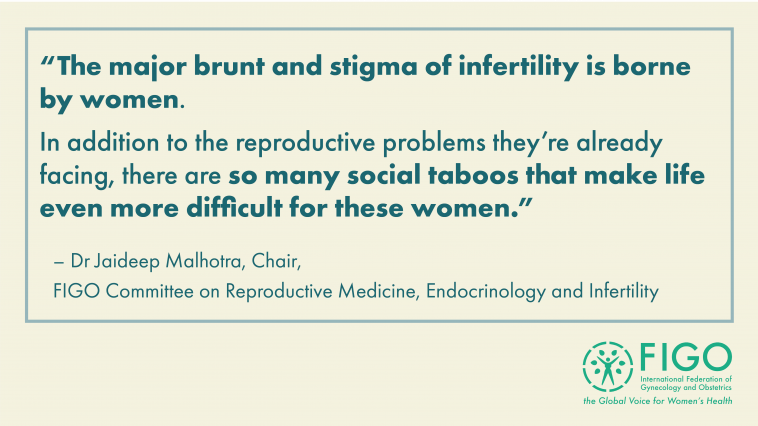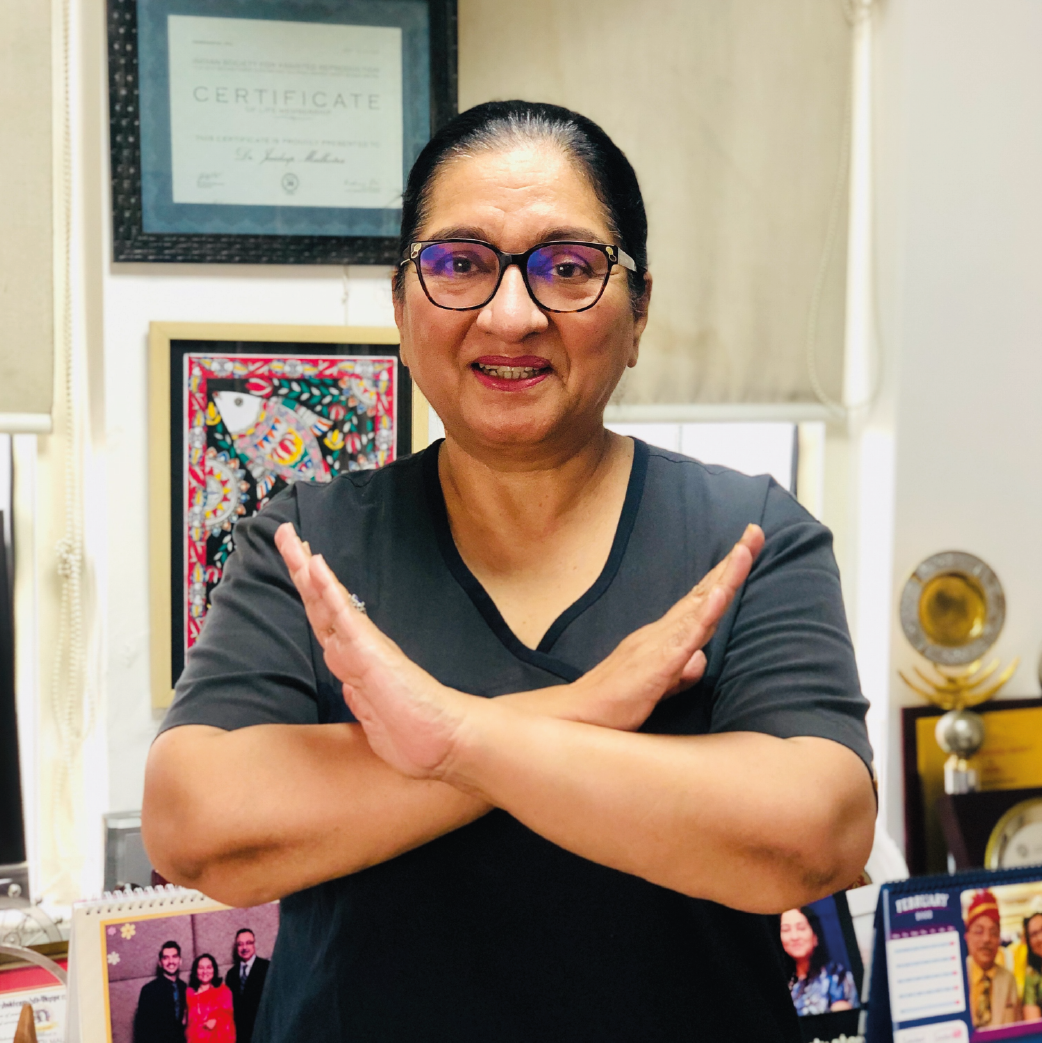#BreakTheBias: Reducing infertility stigma and supporting reproductive goals
Ahead of this year’s International Women’s Day, with the theme #BreakTheBias, we spoke to the Chair of FIGO’s Committee on Reproductive Medicine, Endocrinology and Infertility. We discussed the social stigma faced by many women with fertility issues and what OBGYNs can do to counter discriminatory attitudes and to support women’s reproductive plans.

According to the World Health Organization, infertility is defined as “a disease of the male or female reproductive system defined by the failure to achieve a pregnancy after 12 months or more of regular unprotected sexual intercourse”.
With an estimated 186 million individuals living with infertility, this condition affects families and communities worldwide.
The taboo of infertility: discrimination and isolation
In spite of the widespread nature of subfertility and infertility, lack of education, discrimination and isolation remain prevalent. According to Dr Jaideep Malhotra, Chair of FIGO’s Committee on Reproductive Medicine, Endocrinology and Infertility, in heterosexual couples facing challenges to conceive:
The major brunt and stigma of infertility is borne by women, no matter who is facing fertility issues. The irony is that, in addition to the reproductive problems they’re already facing, there are so many social taboos that make life even more difficult for these women, especially in low- and middle-income countries.
In some contexts, women living with infertility are not invited to any important occasions or ceremonies and are looked down upon as unlucky and bad omens. They are twice as vulnerable to domestic violence as fertile women.
In addition, infertility in women is associated with high depression rates and other mental health issues, and many highlight social stigma as a key contributor to feelings of "anxiety, depression and low self-esteem".
As put by Dr Malhotra, “Oppressive and discriminatory attitudes coming both from the family and society at large cause mental and emotional trauma, which can have long lasting psychological impacts on women.”

The role of OBGYNs: reproductive education and family planning support
Obstetricians and gynaecologists play a key role in supporting women living with infertility, as they can contribute to educating the wider population to challenge taboos and stigma, and help individuals achieve their reproductive goals.
FIGO’s Committee on Reproductive Medicine, Endocrinology and Infertility seeks to empower couples to achieve their reproductive rights globally through awareness, access and availability of the ever-evolving field of infertility and assisted reproductive technologies. In particular, Dr Malhotra highlights:
OBGYNs, as custodians of women's health, need to raise enough awareness that both men and women can experience sub-fertility. We must highlight that, with infertility, early and evidence-based management of the condition can help the majority of these individuals to achieve their reproductive goals.
It is our duty to ensure that any couple who comes into contact with us is duly counselled and given the right directions about their treatment so they can benefit from the options available to them. Every couple who wishes to conceive deserves the right to do so, and we should help them achieve this.